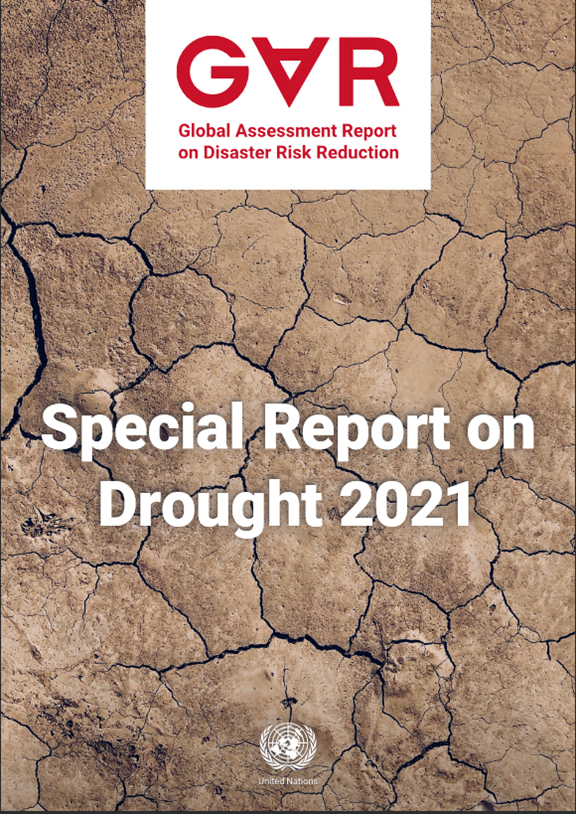GAR Special Report on Drought 2021 calls for global action to increase resilience to droughts

date: 23/06/2021
See also: Link to the report
Every year on June 17, the World Day to Combat Desertification and Drought is observed. The UN-designated day is all about a green planet, sustainable development, and health and welfare of people. On that same day the GAR Special Report on Drought 2021 was launched with the presence of Mami Mizutori (Special Representative of the Secretary-General for Disaster Risk Reduction), Ibrahim Thiaw (Executive Secretary of the UN Convention to Combat Desertification), Jane Lubchenco (Deputy Director for Climate and Environment in the White House Office of Science and Technology Policy) and Stephen Quest (Director General of the JRC). With one of the three coordinating lead authors, JRC is a driving force behind this new report.
Droughts have deep and widespread impacts on societies, ecosystems and economies and incur costs that are borne disproportionately by the most vulnerable people. The extensive impacts of drought span large areas, cascade through systems and scales, and linger through time. They affect millions of people and many sectors and domains – such as agricultural production, public water supply, energy production, waterborne transportation, tourism, human health, ecosystem services and biodiversity – contributing to food insecurity, poverty and inequality.
The GAR Special Report on Drought 2021 explores the complexity and systemic nature of drought and emphasizes that drought poses a significant threat to achieving the goals of the 2030 Agenda for Sustainable Development and of the Sendai Framework for Disaster Risk Reduction 2015–2030. It shows that increasing greenhouse gas emissions, together with the vulnerability of populations and ecosystems exposed to drought, are important drivers of drought risk. Addressing these facets as well as human activities that intensify and propagate drought impacts is central to reducing the risk. It stresses that this threat can be substantially reduced by applying prospective, proactive and innovative approaches to drought risk management. Drawing on a detailed analysis of the components of drought risk and on lessons learned from case studies around the world, the report calls for a sharper focus on prevention: shifting from reactive approaches to getting ahead of the curve by addressing the root drivers of drought and socioecological vulnerability, avoiding and minimizing risks through innovative governance mechanisms for an increased resilience to drought.
